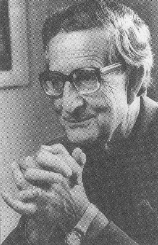Hans Eysenck
1916-1997
Hans Eysenck is probably best known as a controversialist. He has received acclaim and criticism from colleagues and seems to strive more from the latter. Born the son of German film and stage celebrities, he was encouraged to pursue acting as a career.
After graduating from high school, however, he left Germany in opposition of the Nazi Regime and eventually completed his Ph.D. in Psychology at the University of London. Since that time, he wrote over 50 books on such diverse topics that he seemed to have an interest and expertise in everything. He was more a theorist than a researcher, and although much research has supported his theories since, there are some that have been scrutinized and attacked.
His most influential paper in terms of the treatment of mental illness challenged the effectiveness of psychotherapy. He argued that the treatment approaches of the time, especially psychoanalysis, were no better than no treatment at all. While this outraged some and concerned others, it also challenged many to test his theories. Since its publication, a plethora of research has been completed that shows psychotherapy to be an effective approach to the treatment of mental illness.
Eysenck was somewhat of a biological theorist and he also inspired research on the biological components of personality. He stated that intelligence was largely inherited and introduced the world to his concepts of extroversion and neuroticism, the two basic personality dimensions, according to his theory. He believed that all personality traits could be summarized by these two dimensions, which he called supertraits.
His theories have inspired many and although controversial in many aspects of his career, he remains a celebrity, much like his parents, for those who study personality theory.
